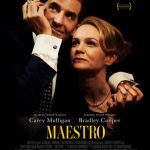
Colman Domingo pours his heart out in a captivating and compelling performance as Bayard Rustin, the energized, dedicated, gay organizer for racial equality and justice who organized the 1963 March on Washington. Domingo teams up for the long-overdue biopic of this forgotten Civil Rights leader directed by George C. Wolfe (Ma Rainey’s Black Bottom) but, overall, the movie falls into some predictable pacing and weak characterizations in important moments resulting in a historical lesson of non-violent protest for equality that could have had more impact.
Domingo captures the look, mannerisms and essence of his character down to his missing tooth and his rat-a-tat-tat speaking cadence. His intensity never lets up whether inspiring his staff to keep working or charming a potential lover.
The breezy, jazz music from Branford Marsalis helps keep things moving. But that’s off-set by the choppy editing that whipsaws from scene to scene. This leaves us having to quickly re-orient to keep up with the threads of Rustin’s battle to make The March a reality.
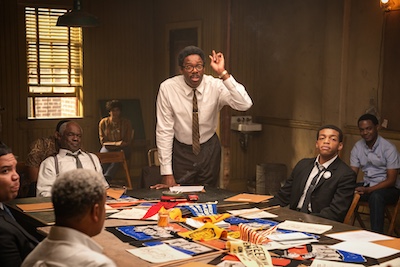
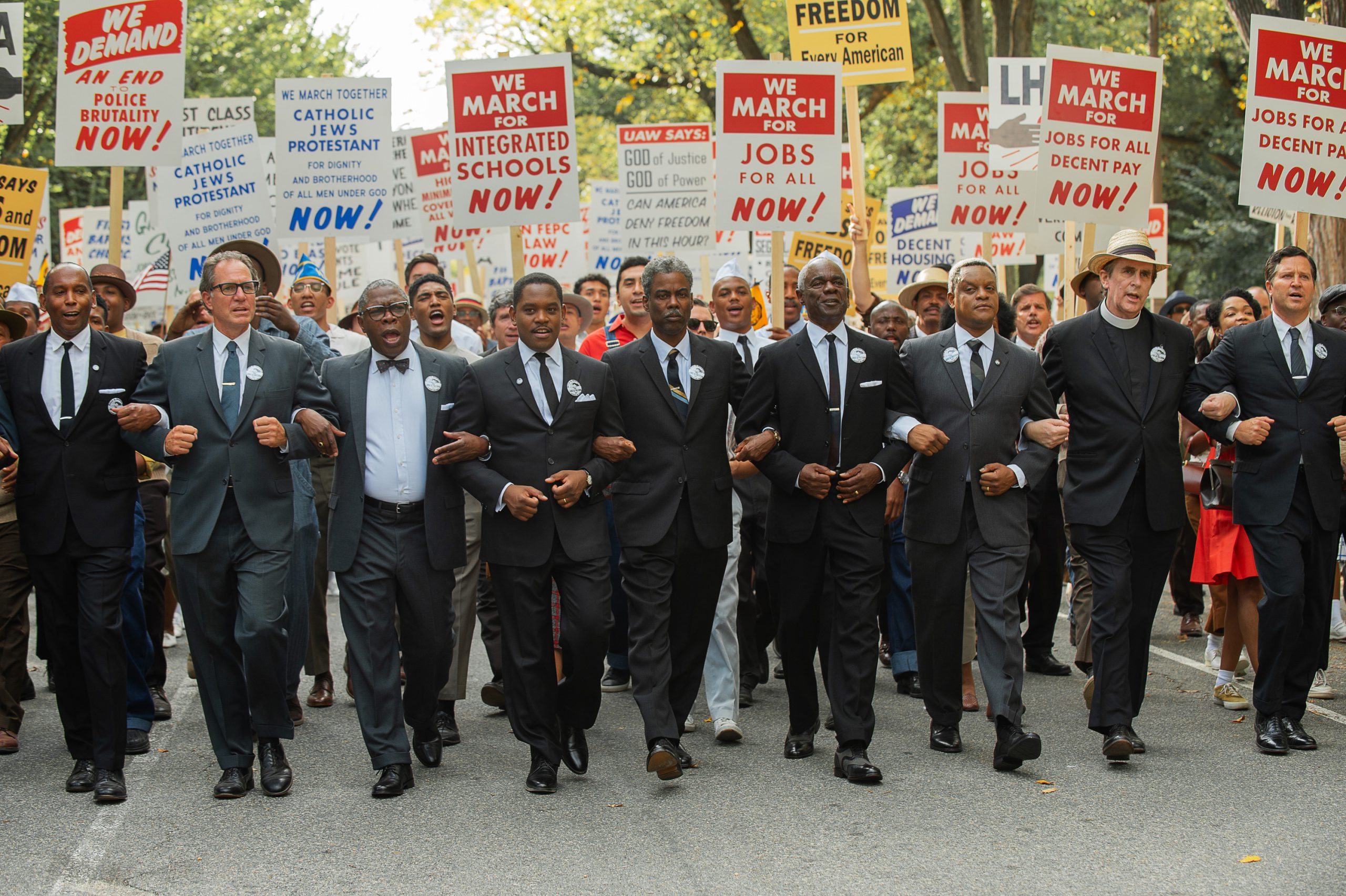
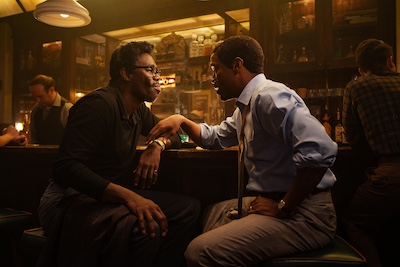
The conflict in the film arises mostly from Rustin having to win the approval of the Black Establishment power elite including Roy Wilkins, played with excellent quiet, low-key rage by Chris Rock. Rep. Adam Clayton Powell with his little tiparillo cigar (Jeffrey Wright) is the most vociferous and devious of the detractors. Rustin also suffers the slings and arrows of attacks from the White power structure like J. Edgar Hoover’s FBI and Attorney General Bobby Kennedy for his activism, unabashed and unaccepted homosexuality. Once he re-gains friendship, approval and trust from Martin Luther King Jr. (Aml Ameen), Rustin gets to stay in the game.
The parallel storyline from writers Julian Breece and Dustin Lance Black details Rustin’s personal desires. His infatuation with a married clergyman (Johnny Ramey) and uncovered secrets from his past constantly threaten his position. And his long-term personal/professional relationship with Tom (Gus Harper), his live-in, white, most-trusted confidante is never fully realized. Both these relationships are purely fictional which was not necessary to include if trying to give an accurate portrait of Rustin.
The last act of the film is the weakest. All the planning, maneuvering and hard work to stage The March should have paid off with a stand up and cheer moment when Dr. King delivers the “I Have a Dream” speech. We think the characterization by Amil Ameen of Dr. King s weak and the most well-known “I have a dream” line of his speech is not even spoken. He comes off less than charismatic. Perhaps using the line was restricted. Even so, the event itself almost feels like a cinematic kiss-off. At the conclusion of the speech we are left deflated.The camera lingers on a long glance over King’s shoulder at Rustin. The importance of The March and the movie wrap up much too quickly. Emotionally, it was a dud.
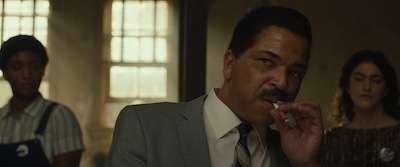
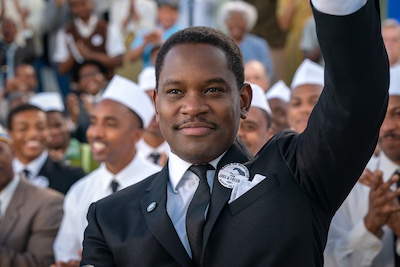
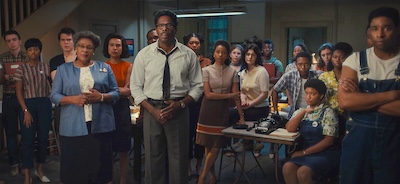
Rustin was posthumously awarded The Presidential Medal of Freedom by President Obama in 2013. The film was produced by Barak and Michelle Obama’s production company Higher Ground. Thanks to Director Wolfe and Colman Domingo for this new revelation about an important overlooked historical figure. Rustin, the man, is ultimately more memorable than Rustin the film, even though Wolfe’s intentions and Colman’s passionate performance about race and freedom are strong, important and so relevant now.
Netflix 1 Hour 48 Minutes PG-13








